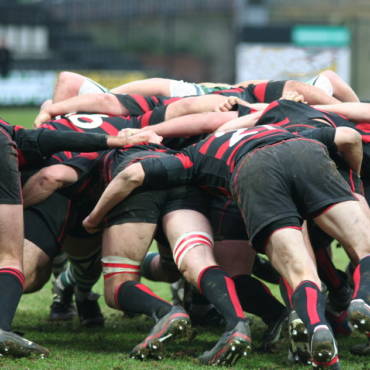The Commonwealth Games medal table is about to return to normal in Delhi.
And, unfortunately for Australia, this could mean a reduction in medals of up to 20% compared to results at the 2006 Commonwealth Games in Melbourne.
The Perfect (Medal) Storm which has existed since 1994 is at an end and it is time for normal viewing to return.
Dominating the Medal Table: More than just luck:
To win a medal tally at a major games like the Olympics, the World Championships, the Asian Games or the Commonwealth Games you need a lot of very good athletes, teams and coaches to perform at their very best.
But to dominate a medal tally at a major games you need two things to happen simultaneously – the Perfect “Medal” Storm:
- You need a lot of very good athletes, teams and coaches to perform at their very best and;
- You need your opposition to perform very poorly.
The Commonwealth Games 1994-2006 is an example of the Perfect (Medal) Storm.
Australia’s domination of the Commonwealth Games medal tables during the period 1994-2006, winning more than double the number of Gold medals won by any other nation during that period, has to be attributed to something more than just good luck, great athletes, talented coaches and smart management.
In 1993, Australia, hot on the heels of the announcement of their winning bid to host the 2000 Olympics in Sydney, awoke from the high performance sports coma it had been in since the 1956 Melbourne Olympic Games and began to build what was at the time, the world’s best high performance sporting system.
And simulateously traditional Commonwealth Games rivals Canada and England were at the low points of their respective high performance sporting powers.
The Perfect (Medal) Storm was beginning to form……..
Remember that in 1978, the Commonwealth Medal Table read:
- Canada (just two years after they hosted the 1976 Montreal Olympics);
- England:
- Australia.
In 1982, Australia hosted the Commonwealth Games in Brisbane and the table looked like this:
- Australia (only one Gold Medal ahead of)…;
- England;
- Canada.
Then in 1986, it was:
- England;
- Canada;
- Australia.
In 1990, we saw:
- Australia (with five more “Golds” than….);
- England;
- Canada.
Then the “storm” gathered force…
In the 1990s, Australia was investing tens of millions of dollars into preparation for the Sydney 2000 Olympics: facilities, coaching, sports science, research, direct athlete payments, quality sports management, the Olympic Athlete Program, the AOC’s Innovations program…………
But for traditional Commonwealth Games rivals Canada and England, programs like “Own the Podium” and institutions such as the the UKSI, the EIS and Sport England were almost ten years away and both nations were languishing with high performance sports systems that even Charles Dickens would have described as anachronistic.
Delhi is different:
In Delhi, Australia faces an England with a mature high performance sports system, with well prepared and well funded athletes, talented, well educated coaches and professional sports management.
In Delhi, Australia faces a Canada whose “Own the Podium” program has already been so successful that they won the Gold Medal count at the 2010 Winter Olympic Games in Vancouver doubling their 2006 Turin Olympic Games gold medal tally in the process.
In Delhi, Australia also faces a passionate and increasingly competitive New Zealand (fourth on the all time Commonwealth Games medal table), a resurgent South Africa and several others nations who have invested heavily in high performance sport in recent years including Scotland, Ireland, Wales and Malaysia.
Add to that the sleeping giant of Commonwealth sport – the host nation India – who will have some significant advantages in the competition conditions and you have a vastly different Commonwealth Games environment to that of the past 16 years.
The Calm After the Storm:
After the Games, the “spin” will begin and the excuses for the Australian medal tally crash will be everywhere.
“Not enough money invested in high performance sport” – true.
“The conditions were really tough in Delhi” – again true but its the same for everyone.
“We are in the process of re-building our high performance sports system after the Crawford review“ – again true.
But excuses, rationalisations and “spin” are unnecessary. Times, as they say, have changed and the Performance Clock has turned.
The “storm” is over.
Time for other Commonwealth sporting nations to enjoy the sunshine for a while……..
Wayne Goldsmith




4 Comments
I hope you didn’t bet on that mate 😛
Hi Tom.
No – no money involved – just professional credibility.
I make it a golden rule never to bet on anything that eats or had parents!!
Some big questions to come out of this for England and Canada.
Unless the English are deliberately using this event in some sort mystical high level tactical or strategic way to help them prepare for London 2012 by giving everyone else a false sense of security, then they are in serious trouble and many heads should (but won’t) roll.
Thanks for the comment.
WG
Based on the current tally do you still see your prediction coming true? My guess is after the pool is done it will all even out.
Thanks George.
I think Australia will win the battle for medals but I am genuinely surprised at the poor performances of England and Canada. Very very surprised – (but not as much as they are I suspect).
Here’s five questions about the pool results we should all be asking – stating that first and foremost we should be proud of everyone who tried their best for their nation:
1. Why were England so terrible?
2. Why can Australia be beaten so badly by the USA in the Pan Pac championships a month ago – 26 Golds to 6 – and still comfortably beat the rest of the Commonwealth in Delhi?
3. Where does the swimming competition in Delhi fit in world swimming in 2010? Compare results in the pool in Delhi to the European Championships, the Pan Pacs and the All Asian Games for example.
4. How will the swimming results in Delhi reflect on results in London 2012?
5. Should Australia even bother sending a full strength swimming team to the next Commonwealth Games in Glasgow in 2014 or just send an under 18 / development team?
Interesting times.
WG
Comments are closed.